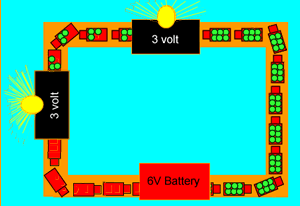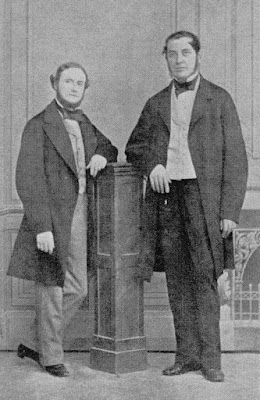Today (October 17, 1887) is Gustav Robert Kirchhoff Memorial Day, who researched the law of circuit, spectroscopy, and the law of thermal radiation.
Gustav Robert Kirchhoff was born on March 12, 1824 in Gonisburg, eastern Prussia. He was educated in Koenigsberg. He then studied at the University of Albania. In 1833, France Newman and Jacobi co-founded a mathematical-physics seminar in Koenigsberg with their students introducing research methods. Girhoff attended the Newman-Jacobian Symposium from 1843 to 1846. He graduated in 1847 from the University of Gonsburg with a degree in mathematics-physics.
Kirchhoff worked as a professor
at the Braslav Institute of Education. He also made significant contributions
in the field of chemistry. While studying at the University of Gonisburg, he
undertook important research on current. At the age of 21, he published the
world-famous Kirkoff circuit laws. It was used to calculate current, voltage,
and interruptions in electrical networks. Kirchhoff's circuit laws help predict
current and voltage in circuits. These two rules are:
Kirchhoff's current law:
This law is also called
Kirchhoff's first law, Kirchhoff's point rule, or Kirchhoff's junction rule (or
nodal rule). This law states that, for any node (junction). In an electrical
circuit, the sum of currents flowing into that node is equal to the sum of
currents flowing out of that node. (Or)The algebraic sum of currents in a
network of conductors meeting at a point is zero. At any given point, the sum
of the currents entering it is equal to the sum of the currents exiting it.

Kirchhoff's voltage law:
This law is also called
Kirchhoff's second law, Kirchhoff's loop (or mesh) rule, and Kirchhoff's second
rule. This law states that the directed sum of the potential differences
(voltages) around any closed loop is zero.

He studied spectroscopy with the German chemist Robert Bunsen. Together in 1854 the two discovered the elements cesium and rubidium. These are the most useful elements in the field of electrical engineering. He first discovered in 1857 that electricity flows at the speed of light through a conductor. He did a lot of research on thermochemistry. Researcher on the chemical reaction caused by thermal variations in materials. In 1859 he published the Laws of Thermal Radiation. Explained that energy is emitted from an object in the form of radiation due to its temperature. He proved this in 1861.
He found that ‘black matter’, which absorbs all the electromagnetic radiation that falls on it, emits heat according to the spectrum of the radiation. He first coined the term "black radiation" in 1862. His research led to the development of the field of quantum mechanics. His lectures and research papers in the field of Mathematical Physics have been compiled and published in 4 volumes. Received the Roomford Medal for his study of solar spectra. He won several prizes for his discoveries in various fields, including the Davy Medal, the Jansen Medal, and the Fellowship of the Royal Society of Edinburgh (1868).
Gustav Robert Kirchhoff, who
researched the laws of electric law, spectroscopy and the law of thermal
radiation, passed away on October 17, 1887, at the age of 67, in Berlin. The
crater on the moon was named Kirkoff. Ranked 90th on the list of
autobiographies.
Source By: Wikipedia
Information: Dr.P.Ramesh, Assistant
Professor of Physics, Nehru Memorial College, Puthanampatti, Trichy.







.png)
.jpg)
No comments:
Post a Comment